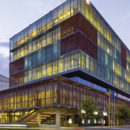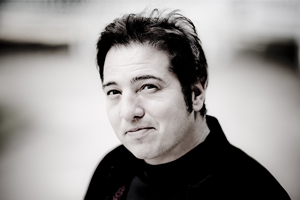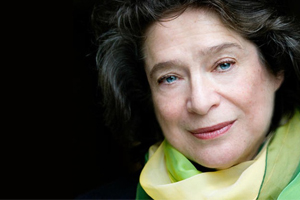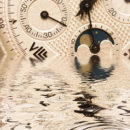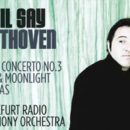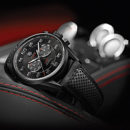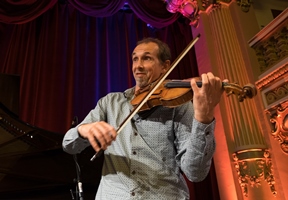
Gilles Apap – an extravagant fiddle player
Interested in classical music, country and Irish music, jazz and Indian raga, Csárdás and Bluegrass, French violinist Gilles Apap has been a permanent and very much appreciated guest of the SoNoRo Festival over the years. All his performances are stunning, and so is his life story.
You have been, for some years now, one of the permanent guests of the Sonoro Festival, yet you are an artist little known in Romania. You were born in Béjaïa, in Alger. Until what age did you stay there?
I was born in Alger, in 1963, in a Catholic family who had lived on that land for five generations. They had to leave the country one month after my birth, mostly because all Frenchmen had already left since 1959 or 1960 as the war erupted. My parents remained until the very last minute, and they left Alger without taking anything with them.
Are there Arabic influences in your education?
None whatsoever. But, I grew up with the Kabila Arabs, my father`s friends, who were coming by our house and I remember many of their terrible stories.
You often play Romanian traditional music. How did you discover Romania?
I discovered Romania through the music of Moldova. At first, I had a tape with Romanian music sent to me by Ion Drăgoi from New York, afterwards I managed to get more tapes and I tried to play some of the songs because I was very curious about the techniques used by the fiddlers and the way they make the violin sound so different. Then, I discovered Menuhin playing a sonata by Bartók and I was intrigued by his unusual cadenza.

You recorded three CDs of Romanian music together with the band The Transylvanian Mountain Boys. How did this band come to life?
First of all, the story began in California, and the band had nothing to do with Romania. The band was made out of a bass player, a guitar player who played a lot of jazz and my brother who played the viola. We chose the name Transylvanian Mountain Boys, although we used to play Irish or country music.
You also play Indian music, the famous raga. How did you end up playing this sort of music?
I went to teach music in India. I had been several times in the Himalayas, but always carrying a backpack, and I arrived at the Ganges’ springs, on the border with China, at 6,000 meters altitude. I played music there; I met some wonderful people who became my friends. Then, for quite a short while, I taught at the Benares University.
Are you a self-taught-person?
I am more or less. My problem is that I have never understood what my violin teachers were saying to me. At the age of thirteen I stopped taking violin lessons.
But when I was twenty-two years old, I started again to do some heavy studying. I wanted to participate in a contest, so that I could have the opportunity to see Yehudi Menuhin there. I wanted to stimulate myself because I was starting to slack.
The truth is that for seven years I took care of a very sick woman, who eventually passed away and this affected me a great deal.
So I started to study for real and I left for California, where I currently live. I won that contest and I believe it is the only prize I had ever won, because I had never participated in anyn other competitions ever since. I had no repertoire; I have never been to a school, to a music conservatory. That contest boosted my self-confidence.
Bruno Monsaingeon produced two documentaries about you and your work. How did he discover you?
Menuhin called him and told him he should listen me playing Bartók`s sonata. I didn`t even know what I could tell him to stir his interest. I didn`t understand why he would want to produce a documentary about me, but he was curios in the things I was doing back then.
You became famous and this happened somehow over night, after playing the Concert in G minor by Mozart with an extravagant rhythm. How did this story begin?
The truth is that Menuhin somehow made it happen. Two years before I played Mozart`s concert in my own rhythm and it turned out very bad, it was an humiliation; the people started to yell and hiss me off the stage. It was an ordeal to finish the concert. I have a very bad memory about this concert that deeply hurt me. My parents were present and they rebuked me of embarrassing them and the musicians in the orchestra weren`t even looking at me anymore. I went home all by myself.
I had not played Mozart`s concert for two years after this episode, not until Menuhin told me I need to play it again. He encouraged me and ensured he would conduct it, but things turned out differently: Menuhin died a day before the date of the concert. The recording can be found on You- Tube. Sometimes I still play the concert in my own rhythm, but the public`s reaction no longer affects me. I am older and wiser now…

How can an artist have originality and at the same time respect for the tradition of the interpretation?
It is very difficult to explain this. It is a work of deepness. It is not a very simple task. It is like learning a new language for each musical style that you are playing. The technique is different.
Before, we were able to identify an artist after his sound, but today we feel like all artists sound the same. What is the reason for this radical change?
The answer lies in the current standardization and globalization, there is no identity anymore. People are afraid of being their own selves. I always say this to my students: try to be yourself, find your own subject, the one that belongs to you. Do not play like everyone else. Myself, I have never listened to anyone, ever. Recently, about a year ago, while I was visiting my father, he told me in his Algerian accent: “Son, do wear socks, you will be cold”. And I told him: “Listen, you are my father and I deeply care for you, but haven’t you realized by now that I have never listened to you? It is pointless to give me advice now.”
Do you have a special admiration for a contemporary violinist?
I don’t listen to music, and anyhow, I prefer the old violinists, like Kreisler, Enescu, Menuhin back when he was nine years old. Last year, I went on YouTube for the first time and also, the same year, I bought myself an iPad and I sent an email for the first time. I am fascinated with the old artists who still have conserved something from the spirit of the early music. I visited Ireland to see how old fiddlers are playing, I went to China to listen to the maestros, and then I went to India.
A few years ago, in Târgu Mureș, I have received a very beautiful gift. I was invited to play, but for two concerts they were able to pay me only 100 Euros, that was all they could afford. I told them I don`t need the money and that I would rather have them invite me to dinner and give the money to the musicians that played together with me – an old man wearing a hat and two young men. I stayed there for two days and we made some good music with these people, without any virtuoso-like tricks. We played wedding music and many other musical genres. I keep good memories from that time.


